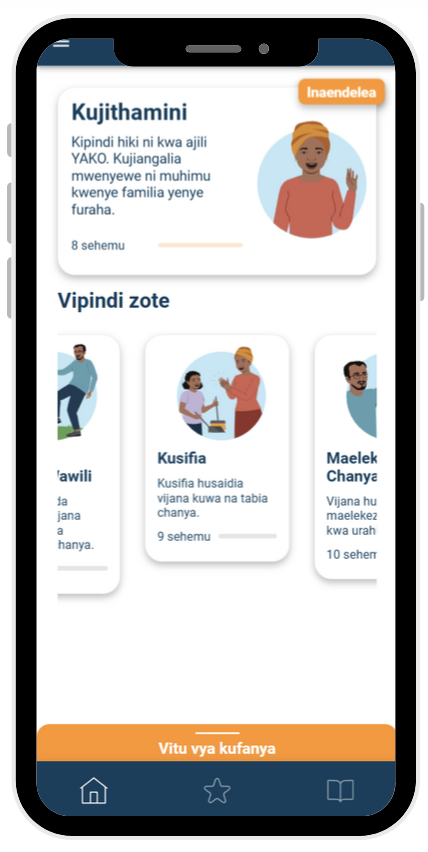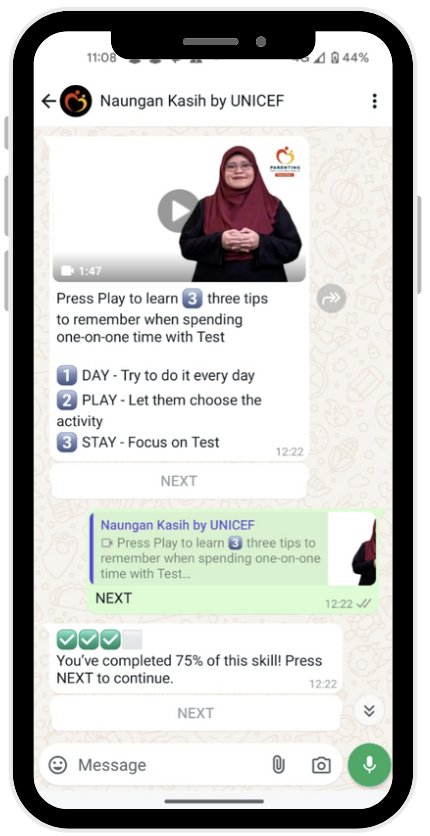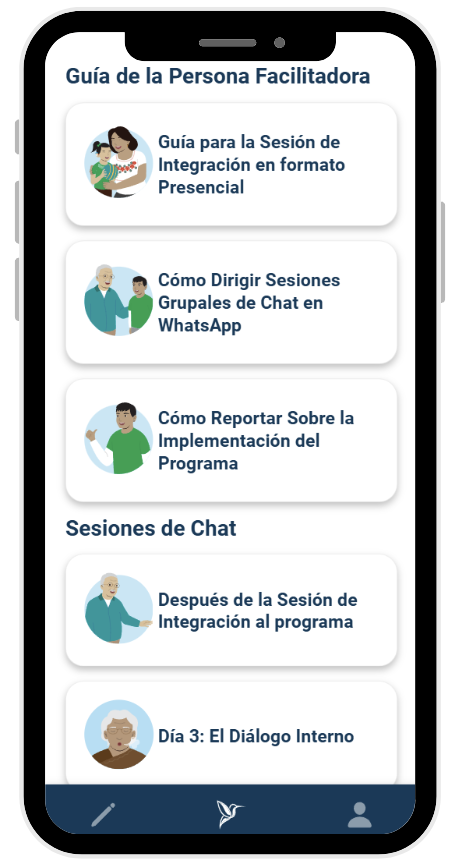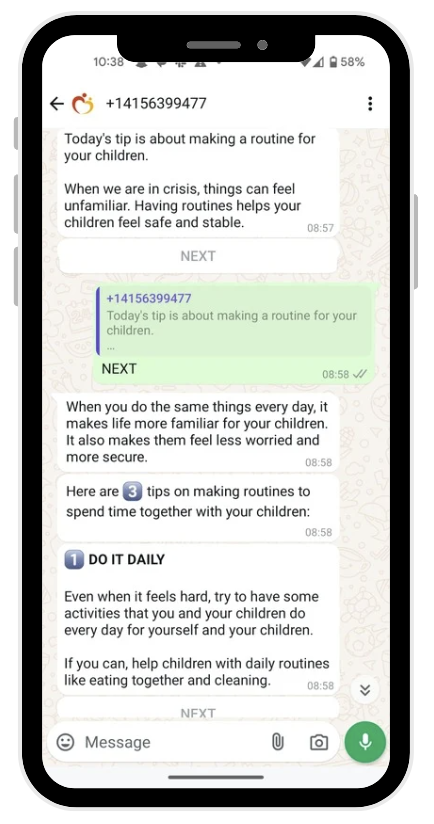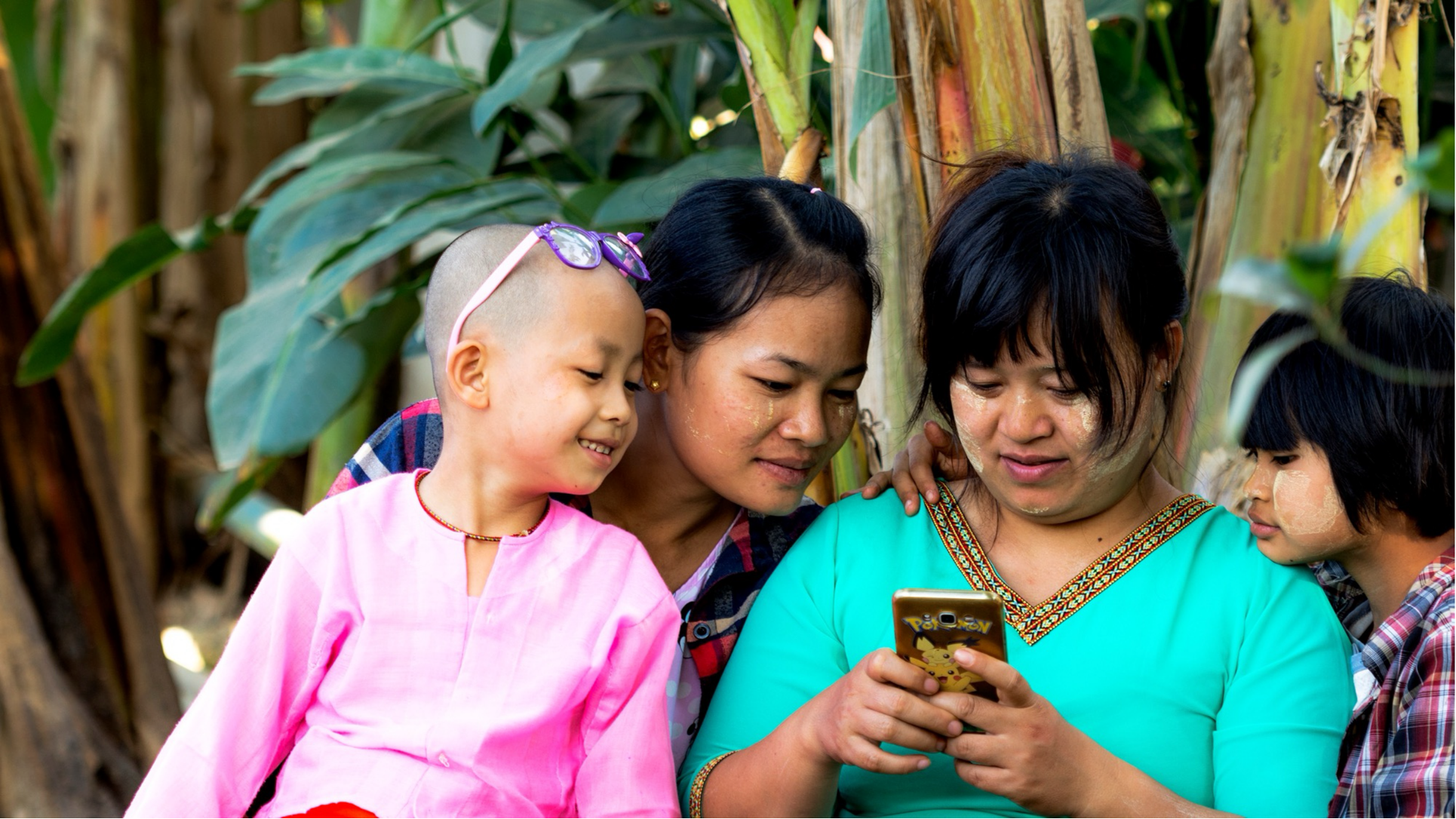
An Innovative Impact Collaboration
The Parenting Collaboratory is a multiyear expert innovation collaboration with the University of Oxford’s Global Parenting Initiative (GPI) and Parenting for Lifelong Health (PLH)—an initiative started by UNICEF and the WHO and now a GPI-supported UK charity.
Oxford, PLH and IDEMS, along with a network of global collaborative partners, joined forces with the common purpose of conceiving, developing, trialling and scaling digital interventions and infrastructure for impact.
Impact at a glance:
15 randomised controlled trials in Africa, Asia, Europe and Central America, informing the parenting content in digital solutions
4 innovative interventions for parents, working across low-resource contexts with varied digital literacy and access
12 countries where parenting apps and chatbots have been deployed or in development to launch
Currently adaptively scaling globally, part of GPI’s goal of supporting 25.7M families by 2026
Children at risk around the world
250 million children (43%) under the age of 5 in low- and middle-income countries are at risk of not reaching their full potential. It’s estimated that as many as 1 billion children worldwide aged 2 to 17 have faced physical, sexual or emotional abuse or neglect within the last year.
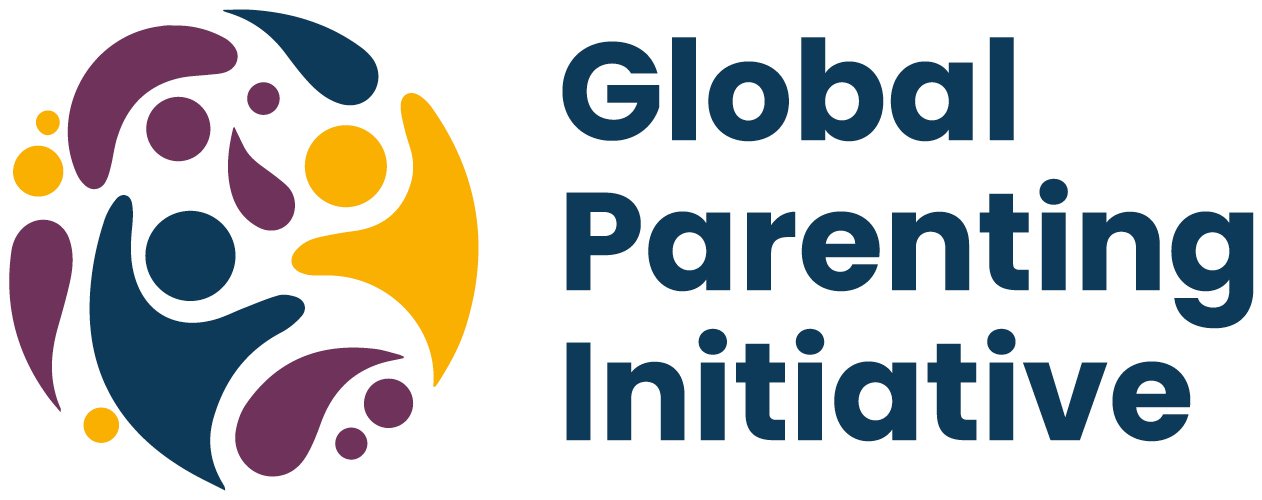
The Oxford team leading playful parenting research and program development
The Global Parenting Initiative (GPI) is a five-year research-within-implementation collaboration of universities, foundations, and implementing partners, with the aim of providing access to free, evidence-based, playful parenting support to every parent, everywhere, so that they are equipped with the knowledge and tools to help their children realise their learning potential and to prevent child sexual abuse, exploitation, and family violence.
Learn more about GPI
The UN-backed NGO accelerating digital innovation for better
Founded in 2012 and endorsed by the United Nations, Parenting for Lifelong Health is at the forefront of a global movement to accelerate the scale-up of evidence-based, freely-available, inclusive, and culturally-sensitive parenting solutions within existing systems of delivery. With a network of implementation partners around the world, PLH is uniquely positioned to facilitate local intervention adoption and adaptation.
Learn more about PLH


A shared vision for scale intervention innovation
Evidence-based parenting programs play a pivotal role not just in reducing childhood physical, sexual and emotional abuse or neglect, but also in promoting positive outcomes like improved learning and social development.
Accessible, adaptable and interoperable digital solutions can expand and improve the reach, adoption and impact of parenting programs. But most mainstream digital technologies aren’t designed to be open—or to work in low-resource contexts or across social and economic complexity.
GPI, PLH and IDEMS joined forced with the common purpose of conceiving, developing, trialing and scaling digital interventions and infrastructure for impact.
Transdisciplinary, multidirectional collaboration
Our transdisciplinary, research-based Collaboratories are multiyear collaborations with expert researchers and community organisations around the world. We work together to responsibly conceive, develop and scale digital interventions to global grand challenges.
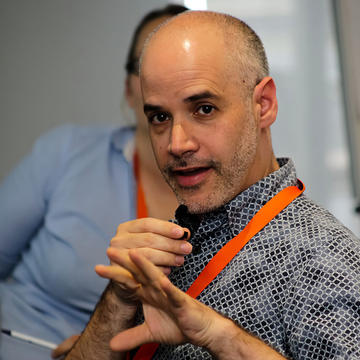
Professor Jamie M. Lachman
University of Oxford, UK
Global social innovation R&D experts
Oxford’s field-leading social scientists and IDEMS’ PhD mathematical scientists lead pioneering research and innovation, designing systemic digital intervention innovation that allows for both global evidence-based programming and localised adaptation.
Professor Jamie Lachman is the lead principal investigator for the GPI. He is Professor of Child and Family Global Health in the Department of Social Policy & Intervention at Oxford, and has over 20 years of experience developing, implementing, and scaling social interventions that improve the lives of vulnerable children and families.

Christine Laetitia
INNODEMS, Kenya
Local innovation R&D teams
Regional teams specializing in research methods for new digital interventions and localised application development, and equipped with local cultural knowledge and relationships, contribute to research trials and application development and design.
Christine Laetitia is a Research Methods Specialist at INNODEMS, a Kenya-based organisation, where she leads on-the-ground app development and provides implementation support in collaboration with local partners.

Dr. Joyce Wamoyi
National Institute for Medical Research, Tanzania
Local researchers and community stakeholders
Meaningful local research, adaptation, adoption and use depend on ongoing collaboration with an extended global network of government departments, NGOs, community organisations and other representative local stakeholders.
Dr. Joyce Wamoyi is a Senior Social and Behavioural Researcher at the National Institute for Medical Research in Mwanza, Tanzania. Dr. Wamoyi is a Principal Investigator on the ParentApp for Teens and ParentApp for Kids studies in Tanzania.

Mission-aligned funding
The Lego Foundation, with a thematic impact focus on “learning through play”, supported the Collaboratory’s research-and-development impact innovation, through the Global Parenting Initiative, as a lead funding partner.
Clinical-trial rigour, accessible technology, measurable impact
Innovation for low-resource contexts
All Collaboratory innovation emerges from a focus on low-resource contexts and underserved communities and users. With most mainstream technology designed for high-resource contexts and users, this approach ensures that Collaboratory technology is universally inclusive—and yields the original innovation that comes solving previously unaddressed problems.
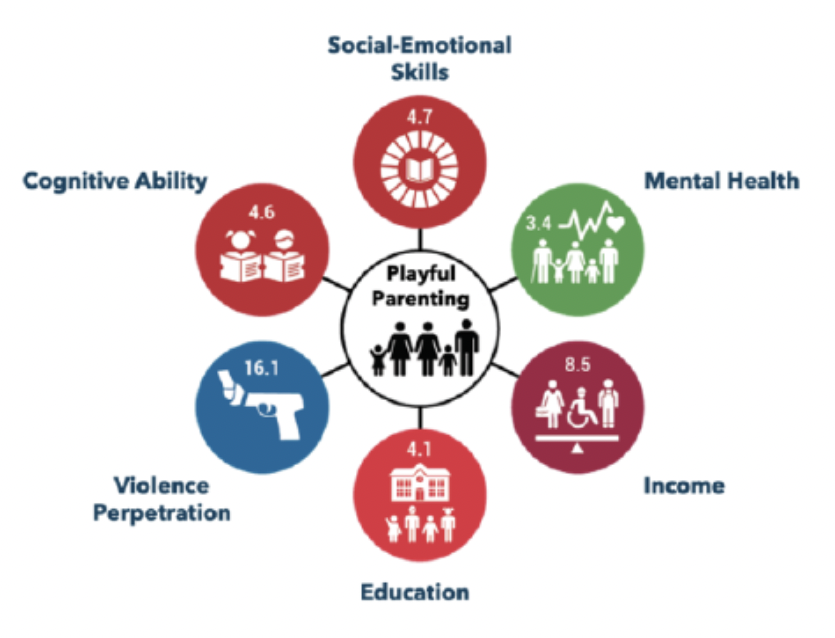
RANDOMISED CONTROLLED TRIALS
Evidence of Impact
Fifteen randomised controlled trials in South Africa, the Philippines, El Salvador, Lesotho, Moldova, North Macedonia, Romania, Tanzania, Thailand, and Zambia investigated the effectiveness of Parenting for Lifelong Health programmes. Quantitative RCTs are typically complemented by qualitative research studies into design, usability and local best practices (among other impact measurements). Collaboratory research is published in peer-reviewed papers.
ACCESSIBLE INFRASTRUCTURE & DESIGN
Access for variable connectivity, digital literacy of low-resource contexts
We seek to make parenting resources accessible to every family in order have the most impact. Solutions are developed for and tested for functionality recognising limitations in device access, internet availability, and other limitations in low-resource contexts. By designing technology tools that every family can rely on, we ensure comprehensive digital inclusion.
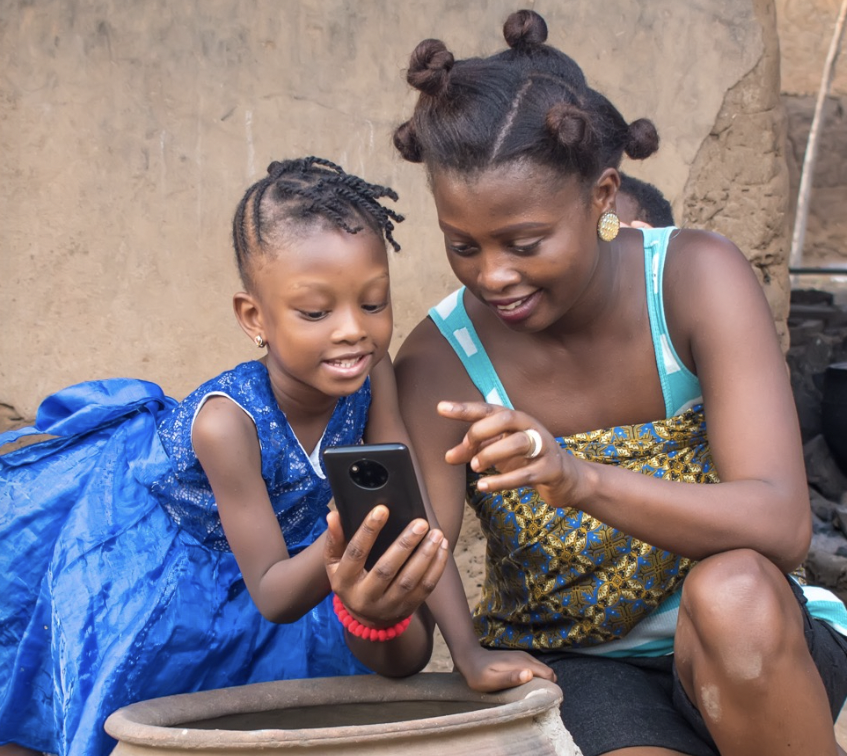
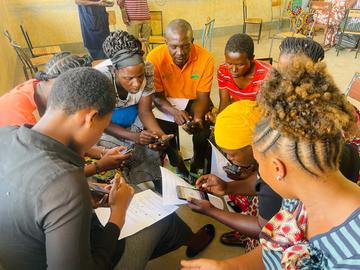
Rapid local deployment
Easy, low-skill local adoption and adaptation
All solutions are designed for easy development, adaptation and ongoing content management. Low-technical skill local teams are able to lead content localisation and language translation, as well as to shape features and user experiences. Deployment partners can use local servers for ownership and control of local data.
INEXPENSIVE OPEN-SOURCE SOLUTIONS
Open software for accessible impact
App and chatbot software and materials are fully open-source, enabling cost-effective local adoption and adaptation. Designed for deployment around the world and for shared innovation best practices, solutions benefit from economies of scale while still enabling local ownership and control.



